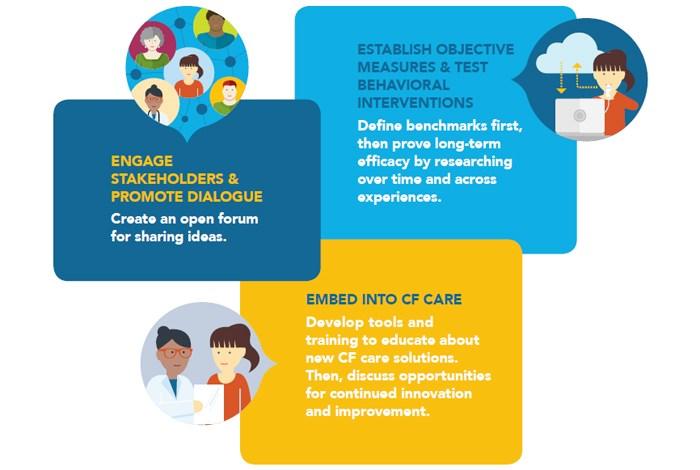Cystic fibrosis can affect many aspects of people's lives with the disease. Each aspect can represent a barrier to managing daily care, including financial and emotional issues, a person's life stage, personal values, and goals.
Recognizing these challenges, the Cystic Fibrosis Foundation made a strategic commitment to develop a multi-pronged approach to help people with CF stick with their treatment plans called Partnerships for Sustaining Daily Care (PSDC). The goal of PSDC is to bring together individuals with CF, their families, and care teams to foster productive conversations about aligning personal goals with health goals.
Building partnerships to sustain daily care is complex and demands a comprehensive approach to create solutions without posing additional burdens on people with CF, their families, or care teams.
Consisting of overlapping elements, this approach allows for a continuous process that is informed by community stakeholders engaged to promote dialogue, share ideas, and establish measures to test behavioral interventions before they can be embedded into specialized CF care.

